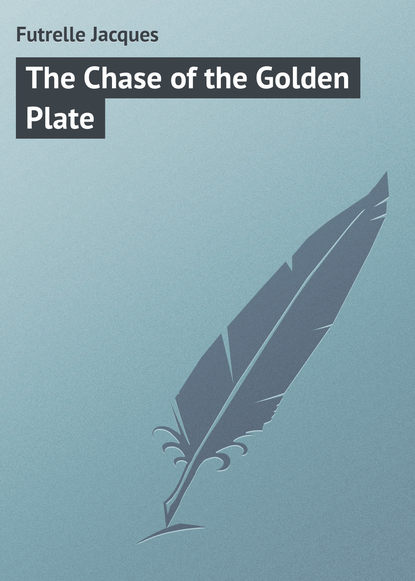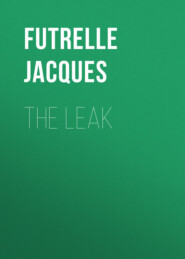По всем вопросам обращайтесь на: info@litportal.ru
(©) 2003-2024.
✖
The Chase of the Golden Plate
Автор
Год написания книги
2017
Настройки чтения
Размер шрифта
Высота строк
Поля
"Really, I don't know," responded the scientist. "Perhaps," he added curtly, "he may have had some absurd notion that you would find it out for yourself. He has strange ideas like that sometimes."
And when Detective Mallory had fully recovered The Thinking Machine was gone.
Meanwhile Hatch had seen and questioned Dr. Clarence Walpole in the latter's office, only a stone's throw from Dick Herbert's home. Had Doctor Walpole recently dressed a wound for Mr. Herbert? Doctor Walpole had. A wound caused by a pistol-bullet? Yes.
"When was it, please?" asked Hatch.
"Only a few nights ago."
"Thursday night, perhaps?"
Doctor Walpole consulted a desk-diary.
"Yes, Thursday night, or rather Friday morning," he replied. "It was between two and three o'clock. He came here and I fixed him up."
"Where was the wound, please?"
"In the right shoulder," replied the physician, "just here," and he touched the reporter with one finger. "It wasn't dangerous, but he had lost considerable blood."
Hatch was silent for a moment, dazed. Every new point piled up the evidence against Herbert. The location of the wound – a pistol-wound – the very hour of the dressing of it! Dick would have had plenty of time between the moment of the robbery, which was comparatively early, and the hour of his call on Doctor Walpole to do all those things which he was suspected of doing.
"I don't suppose Mr. Herbert explained how he got the wound?" Hatch asked apprehensively. He was afraid he had.
"No. I asked, but he evaded the question. It was, of course, none of my business, after I had extracted the bullet and dressed the hurt."
"You have the bullet?"
"Yes. It's the usual size – thirty-two calibre."
That was all. The prosecution was in, the case proven, the verdict rendered. Ten minutes later Hatch's name was announced to Dick Herbert. Dick received him gloomily, shook hands with him, then resumed his interrupted pacing.
"I had declined to see men from other papers," he said wearily.
"Now, look here, Dick," expostulated Hatch, "don't you want to make some statement of your connection with this affair? I honestly believe that if you did it would help you."
"No, I cannot make any statement – that's all." Dick's hand closed fiercely. "I can't," he added, "and there's no need to talk of it." He continued his pacing for a moment or so; then turned on the reporter. "Do you believe me guilty?" he demanded abruptly.
"I can't believe anything else," Hatch replied falteringly. "But at that I don't want to believe it." There was an embarrassed pause. "I have just seen Dr. Clarence Walpole."
"Well?" Dick wheeled on him angrily.
"What he said alone would convict you, even if the stuff had not been found here," Hatch replied.
"Are you trying to convict me?" Dick demanded.
"I'm trying to get the truth," remarked Hatch.
"There is just one man in the world whom I must see before the truth can ever be told," declared Dick vehemently. "And I can't find him now. I don't know where he is!"
"Let me find him. Who is he? What's his name?"
"If I told you that I might as well tell you everything," Dick went on. "It was to prevent any mention of that name that I have allowed myself to be placed in this position. It is purely a personal matter between us – at least I will make it so – and if I ever meet him – " his hands closed and unclosed spasmodically, "the truth will be known unless I – I kill him first."
More bewildered, more befuddled, and more generally betangled than ever, Hatch put his hands to his head to keep it from flying off. Finally he glanced around at Dick, who stood with clenched fists and closed teeth. A blaze of madness lay in Dick's eyes.
"Have you seen Miss Meredith again?" inquired the reporter.
Dick burst out laughing.
Half an hour later Hatch left him. On the glass top of an inkstand he carried three precious drops of Herbert's blood.
CHAPTER III
Faithfully, phonographically even, Hatch repeated to The Thinking Machine the conversation he had had with Doctor Walpole, indicating on the person of the eminent scientist the exact spot of the wound as Doctor Walpole had indicated it to him. The scientist listened without comment to the recital, casually studying meanwhile the three crimson drops on the glass.
"Every step I take forward is a step backward," the reporter declared in conclusion with a helpless grin. "Instead of showing that Dick Herbert might not have stolen the plate I am proving conclusively that he was the thief – nailing it to him so hard that he can't possibly get out of it." He was silent a moment. "If I keep on long enough," he added glumly, "I'll hang him."
The Thinking Machine squinted at him aggressively.
"You still don't believe him guilty?" he asked.
"Why, I – I – I – " Hatch burst out savagely. "Damn it, I don't know what I believe," he tapered off. "It's absolutely impossible!"
"Nothing is impossible, Mr. Hatch," snapped The Thinking Machine irritably. "The worst a problem can be is difficult, but all problems can be solved as inevitably as that two and two make four – not sometimes, but all the time. Please don't say things are impossible. It annoys me exceedingly."
Hatch stared at his distinguished friend and smiled whimsically. He was also annoyed exceedingly on his own private, individual account – the annoyance that comes from irresistibly butting into immovable facts.
"Doctor Walpole's statement," The Thinking Machine went on after a moment, "makes this particular problem ludicrously simple. Two points alone show conclusively that Mr. Herbert was not the man in the automobile. I shall reach the third myself."
Hatch didn't say anything. The English language is singularly inadequate at times, and if he had spoken he would have had to invent a phraseology to convey even a faint glimmer of what he really thought.
"Now, Mr. Hatch," resumed the scientist, quite casually, "I understand you graduated from Harvard in ninety-eight. Yes? Well, Herbert was a classmate of yours there. Please obtain for me one of the printed lists of students who were in Harvard that year – a complete list."
"I have one at home," said the reporter.
"Get it, please, immediately, and return here," instructed the scientist.
Hatch went out and The Thinking Machine disappeared into his laboratory. He remained there for one hour and forty-seven minutes by the clock. When he came out he found the reporter sitting in the reception-room again, holding his head. The scientist's face was as blankly inscrutable as ever.
"Here is the list," said Hatch as he handed it over.
The Thinking Machine took it in his long, slender fingers and turned two or three leaves. Finally he stopped and ran a finger down one page.
"Ah," he exclaimed at last. "I thought so."
"Thought what?" asked Hatch curiously.
"I'm going out to see Mr. Meredith now," remarked The Thinking Machine irrelevantly. "Come along. Have you met him?"







